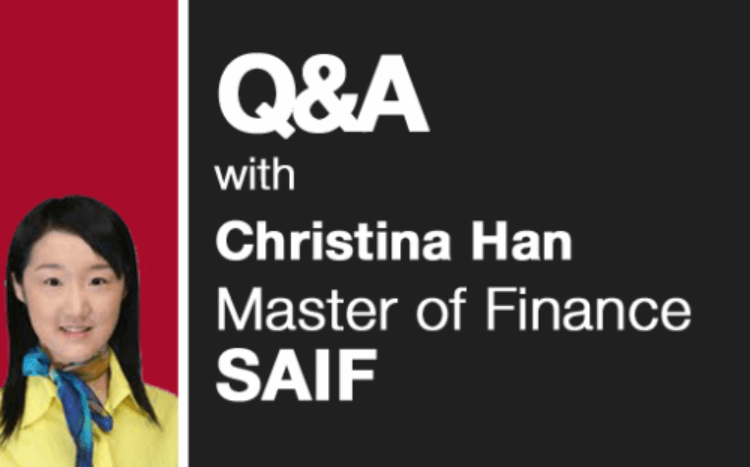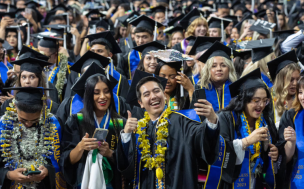I grew up in Harbin, which is the capital city of Heilongjiang Province, in the very north of China. Harbin is a beautiful city, especially during winter, when there’s a lot of ice and snow sculptures. Harbin, known as a "small oriental Paris," is also called “Ice City”. People in my hometown are just the typical northern type: open, helpful and hospitable.
Have you spent any time outside of China?
Yes. In August 2007, I was selected to go on exchange to the University of British Columbia (UBC) for half a year, which was a great experience. I met some great professors and made a lot of friends with various cultures. In November 2009, together with my team, I went to the U.S. to participate in the Intel + Berkeley Technology Entrepreneurship Challenge at UC Berkeley. Also, an amazing experience. I met many great teams from top universities all over the world. I learned a lot during the process, such as how to be a better presenter and answer judges’ questions appropriately.
You studied your Bachelors at Antai (also part of the prestigious SJTU) - what is the main difference between Antai and SAIF?
I think the two colleges have their strengths and weaknesses. Antai is already a famous name for most employers and students. However, in Antai, it’s difficult to find a course that is truly taught in English, although there are some so-called bilingual courses. Besides, it takes two and a half years to finish your masters degree in Antai. SAIF is a relatively new college. Many employers and students don’t know what it is and some even regard it as a tier-two or tier-three College in SJTU. (The situation is getting better now.) However, every course in SAIF is taught by overseas professors in English, using English textbooks and references. In addition, it only takes you two years to finish your master degree here, meaning it saves you one year.
You've had some very impressive internships at big-name firms (ABN, Bain & Co, BCG, Deloitte): which was the most interesting?
I will say these internships were all very useful and I learned and grew so much during the process. Also, I will say that 50% of the learning comes from your daily work and 50% comes from your exposure. I’ve got to make the best use of every internship experience. Like, in ABN, you have the access to many banking products and reports. You can read them during your spare time, although it may have nothing to do with your task. If I have to pick one, I will say the experience at Bain is the most interesting one. During that internship, I led a group of interns to collect customer feedback through surveys and I completed 300 questionnaires in two weeks across five cities. Also, I was once on a case where I reported directly to the Stockholm Office. Actually, I was the only Chinese member on that team and I was in charge of analyzing the dynamics in China’s specific industries. That was pretty challenging and I learned a lot.
How challenging have you found the Finance Masters program at SAIF?
Yes. It is very challenging. Like I’ve mentioned, it can save you one year, which also means you need to do the things in two years that other peers have two and a half or three years to finish. There are a lot of tough courses and you also need to get some great internships to prepare for job hunting, which starts at the beginning of your second year. There’s a lot of great peer pressure here, since every student is very outstanding and competitive and everyone wants to excel even in this competitive environment.
Your favorite class or favorite professor at SAIF?
My favorite professor will be Professor DuQianqian, who graduated from UBC and is a very nice lady. She always smiles at us and is very patient answering our questions. Also, after class, she is like a big sister to us. She will talk about interview skills with us and also attended our annual party and played games with us.
What advice would you give to any hopeful candidates applying to get into SAIF?
I will say SAIF is a very cohesive group. Students here are helpful and competitive in a nice way. Also, you may know that life in SAIF is demanding. But once you succeed in standing out in SAIF, in such a selective and competitive group, you’ll have grown and learned so much that you’ll have a great sense of achievement, which is the ultimate reward to me. As a finance student, we all know that high risk comes with high return. Joining SAIF involves some risks; but you’ll be very happy when the risk pays off, right?
What do you hope to be doing in 10 years time?
I think my goals have been and will keep changing throughout my life. For now, my goal is to become an excellent investment banker first and then when I get the capital I need, I may start a company myself or join a private equity fund where I can invest in promising private companies.
RECAPTHA :
fb
87
b7
1e







